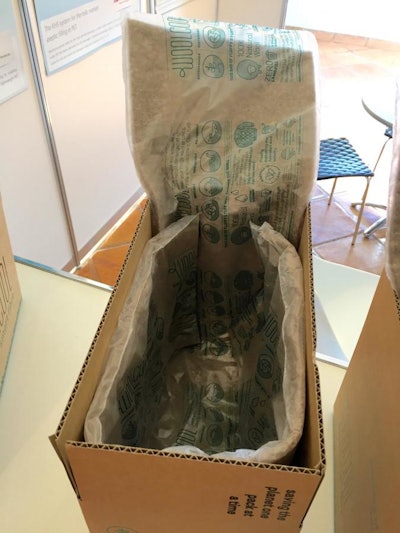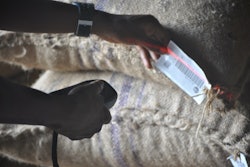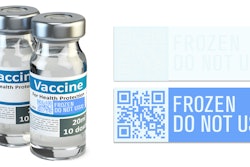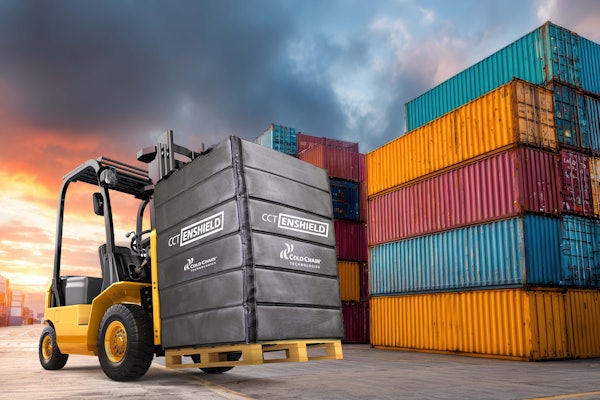
A relatively new insulation material drew the attention of Australian Institute of Packaging conference attendees because of its unusual source: 100% lamb’s wool. To be precise, it’s the wool that grows around the lamb’s belly. Traditionally viewed as having little to no value, it usually winds up in the landfill. But for the last seven or eight years, Woolcool of Australia has been felting it into long sheets that are cut and encased in a microperforated recyclable food-grade polyethylene.
The Australian Institute of Packaging held its 2018 National Conference May 2-3 in Australia’s Gold Coast, and at the display booths of the exhibitors on hand were some intriguing packages.
These wrapped sheets then go inside a corrugated case, where they outperform other insulating options for transporting temperature-sensitive goods, says Woolcool. The firm says that when used with ice packs to establish the required cool temperatures for packaging food, Woolcool insulation has been proven to keep contentpacked at 1°C chilled below 5°C for at least 24 hours.
Woolcool is sustainable, recyclable, compostable, and biodegradable. This insulation material has applications across many industries, from food and beverage to veterinary and pharmaceuticals. But it may wind up fitting especially well in the expanding e-commerce sector, where shipments of fresh food are expected to grow rapidly. Woolcool calculates that compared to using the expanded polystyrene frequently used for insulation, this repurposed sheep’s wool brings a 70% saving on movement/storage because the sheets can be shipped flat-packed.
Woolcool’s website explains that its “PharmaGrade insulated packaging is for direct deliveries of temperature-sensitive pharmaceutical products, such as vaccines.” The company offers insulated boxes in standard sizes for cold chain distribution, as well as insulated liners with corrugated boxes, and polyethylene pouches for shipping small quantities of temperature-sensitive goods.
Editor’s note: This article is an excerpted and edited version of a story published May 3, 2018 on Packworld.com.






















